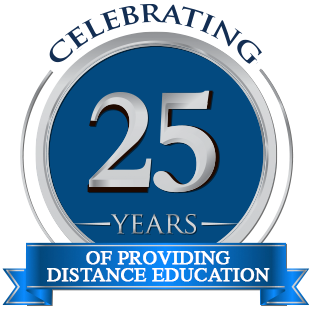Grade 5 Curriculum Guide
The Ogburn Online School’s fifth grade curriculum offers flexibility to the homeschooling students to complete their course work at their comfort. The 5th grade online courses focus on core subjects that include Mathematics, Reading, English Language Skills, Social Studies and Science. Take a look at the 5th grade course description below.
Mathematics
Grade 5 Mathematics students learn new key math skills and reinforce previously learned skills needed for secondary math courses. Skills include whole numbers, decimals, number theory, fractions, percent, probability, data analysis, making and using charts and graphs, Geometry, and measurement.
Reading
Grade 5 Reading includes stories that develop skills in comprehension, vocabulary, fluency and writing. Comprehension skills include critical thinking, main idea, recalling details, inference, drawing conclusions, sequencing, making connections, expressing opinions, character analysis, maps, categorizing. Vocabulary skills include context clues, synonyms, antonyms, comparatives and superlatives, affixes, root words, and compound words. Fluency skills include reading with expression and correct phrasing. Writing skills include figurative language, dialogue, responses, expressing an opinion, sentences, and paragraphs. Students are required to write eight (8) book reviews from book selections at their appropriate reading level.
Grade 5 Language Skills reinforce previously learned skills and introduces new concepts that enhance spelling, reading, grammar, and writing. Spelling skills include phonics, visual memory and discrimination, compound words, word endings, affixes, roots and derivatives. Reading skills include vocabulary, context clues, sequencing, synonyms, and antonyms. Grammar skills include punctuation, types of sentences, conjunctions, parts of speech, verb tenses, capitalization, quotations, and double negatives. Writing skills include acrostic poems, narrative, persuasive, expository, express opinion, letter writing, compare and contrast, organizing, and charting.
Social Studies:
Grade 5 Social Studies students engage in an across the curriculum format to broaden interests in self-awareness, family, school, community, country, people, holidays, and family or cultural traditions.
Science:
Grade 5 Science students learn to cite textual evidence to support analysis of what the text says explicitly as well as inferences drawn from the text. They determine the meaning of words and phrases as they are used in a text, including figurative, connotative, and technical meanings. Students read and comprehend science informational texts to determine or clarify the meaning of unknown and multiple-meaning scientific words and phrases, demonstrating understanding of scientific word relationships. Students acquire and use accurately grade-appropriate general academic and domain-specific words and phrases, gather vocabulary knowledge when considering a word or phrase important to comprehension or expression, and draw evidence from literary or informational texts to support analysis, reflection, and research.

GET MORE INFORMATION
Parents / Guardians, fill out this form to get more information on Admissions and Enrollment Options

25 Years Experience
The Ogburn School has been a leading provider of accredited online and
distance education for more than 25 years making us a quality, reliable
and trusted education provider.
Learn more about The Ogburn School on our
Features Page
Learn more about our program on the
Accreditation Page.
Money Back Guarantee
The Ogburn School will refund your money in full if you are not
completely satisfied with your academic program. If for any reason, you
wish to cancel your enrollment agreement within 14 days after the date
of enrollment, you will receive a full refund. If you cancel after 14
days of enrollment, refund will not be awarded. Enrollment fee is
non-refundable.
You have absolutely nothing to lose by trying The Ogburn School – and a
WORLD of possibilities to gain.
Don’t delay. Enroll Today!

A+ Rated BBB Member
The Ogburn School is proud to be accredited by the Better Business Bureau (BBB) and proudly maintains an A+ rating. This achievement highlights our unwavering commitment to providing exceptional education and exemplary customer service. Our BBB accreditation and A+ rating demonstrate our dedication to upholding the highest standards of excellence for the benefit of our students and their families.
